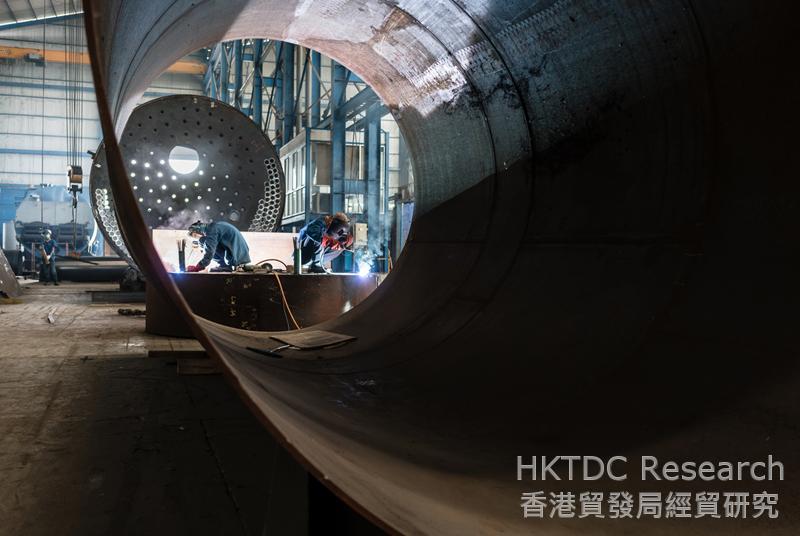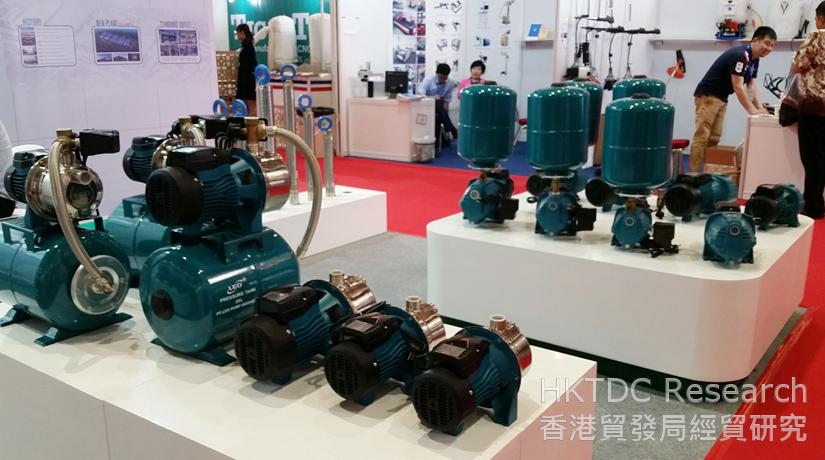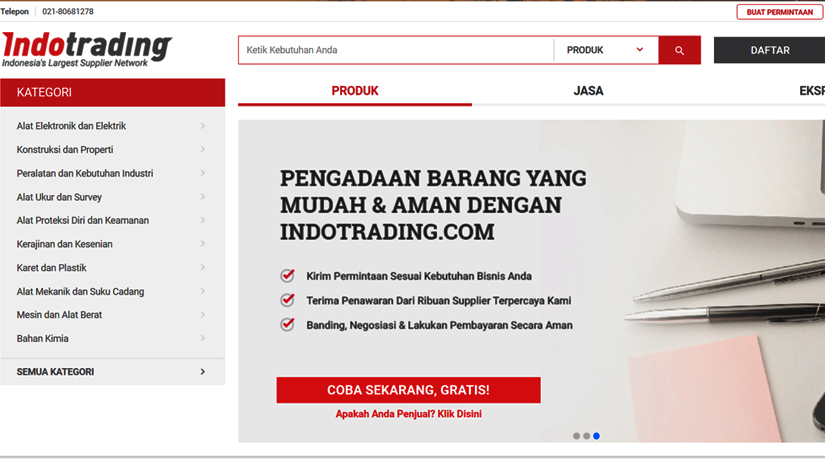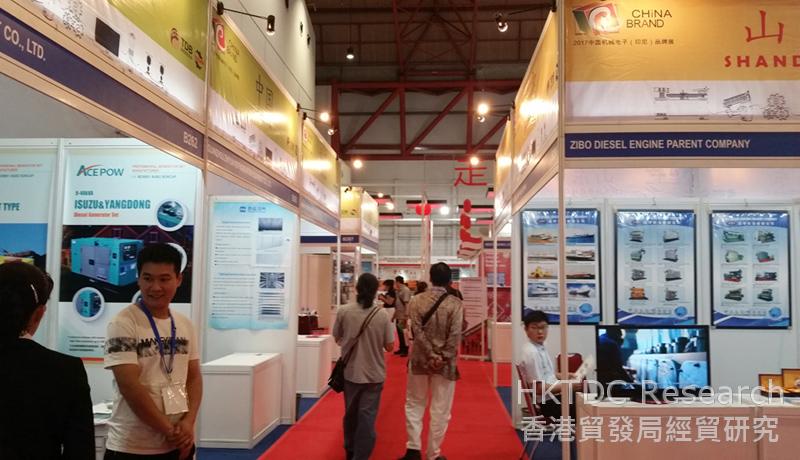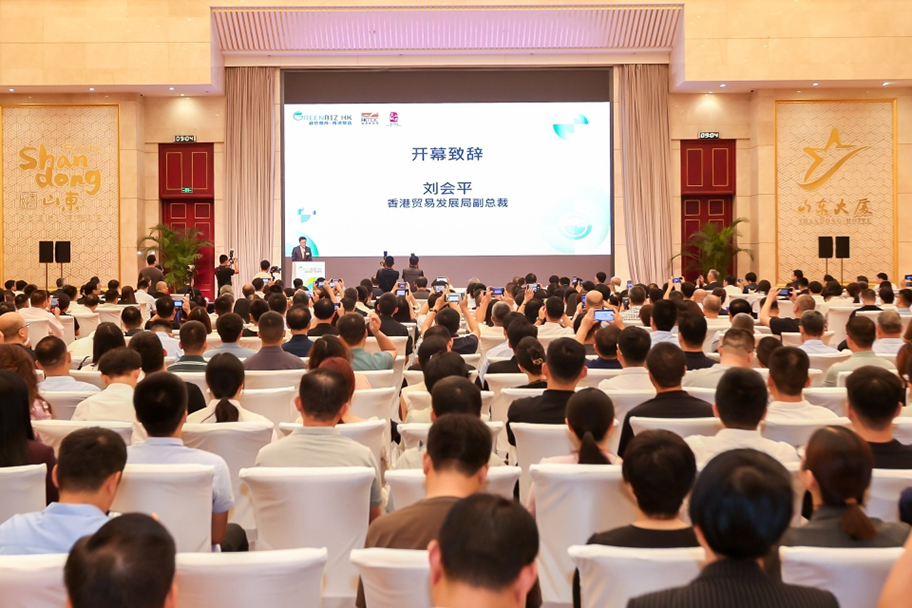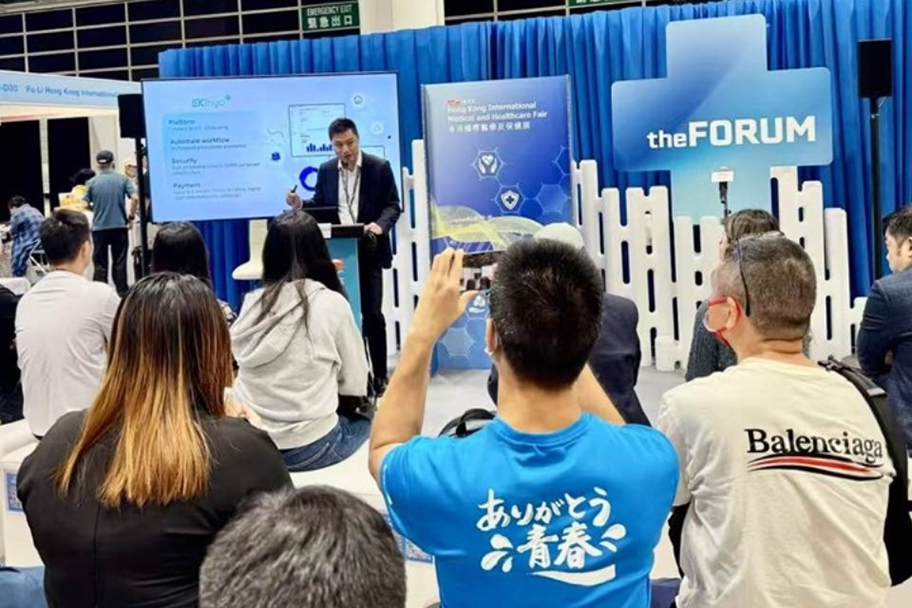BRI Proves Direct Route into Indonesia for Mainland Manufacturers
One of the incidental benefits of the far-reaching Belt and Road Initiative is the opportunities it has opened up for mainland businesses throughout Southeast Asia, with Indonesia emerging as one of the most lucrative markets on offer.
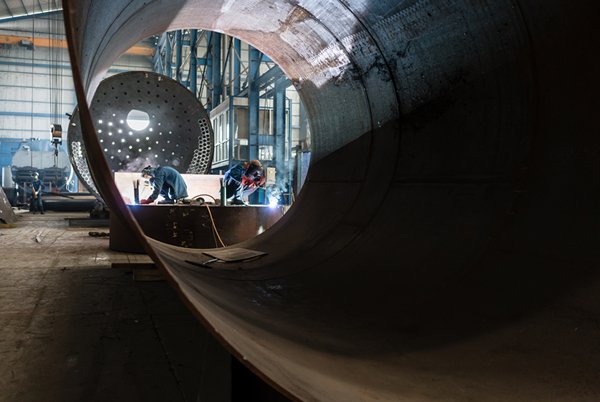
As well as promoting international infrastructure development, China's Belt and Road Initiative (BRI) has also proved an effective means for mainland manufacturers to access new overseas markets, at least according to exhibitors at the recent China Machinery & Electronic Brand Show (Indonesia). Of these markets, Indonesia – a country with a population of more than 200 million and a rapidly growing manufacturing sector – has emerged, unsurprisingly, as one of the primary targets for any Chinese manufacturer looking to expand into Southeast Asia.
Acknowledging the spur provided by his home country's policy-makers, Martin Lin, Investment Management Head at Fujian-based Keneng Electrical Equipment, said: "Our government has done much to encourage private enterprises to expand beyond China and that played a huge part in bringing us to Jakarta for this event."
Making its first appearance at the show, the company was keen to promote its range of meters, gearboxes, engines and generator sets. It also produces diesel engines in partnership with Lijia Co, another Fujian-based business.
Another Jakarta debutante was Friend Control Systems, a Shandong-based high-tech manufacturing enterprise that produces a proprietary range of pressure-measurement instruments, temperature instruments and flow-measurement systems. Again acknowledging the prompt provided by the BRI, Li Ming, the company's General Manager, said: "This policy has definitely encouraged Chinese companies to look to new markets, particularly those within Southeast Asia.
"There is a huge market for us here Indonesia, largely because of the country's rapidly growing manufacturing sector. I have every hope that our products will be successful here."
In the case of the Beijing-based Valve General Factory, it seemed as though government intervention was even more direct, with Overseas Sales Manager Caroline Ling saying: "We were officially advised to come here to test the Indonesian market and to look for distributors and trading partners."
The company has a 63-year history of producing high, middle pressure and steam-trap valves. To date, it has supplied mainly domestic clients and has had only limited exposure to the key export markets. It currently operates from a 60,000-square-metre plant in the Panggezhuang Industrial Development Park in the Daxing District of southern Beijing and has more than 1,100 employees.
For Shandong-based TigerTec, it was trusting in state-sponsored overseas promotion to help drive sales of its computer numeric control (CNC) machines. Outlining the company's expectations, Sales Manager Tina Li said: "While we already have a partner in Indonesia, we have very few customers here. We hope this new government initiative will help promote our products in Indonesia and in a number of other countries.
"In the case of Indonesia, we are well aware of how competitive a market it is. Despite this, though, we have attracted a lot of interest throughout the course of this expo."
The company's CNC machines primarily have applications within the wood-working, sign-making, model-making, mould-making and stone-engraving sectors. It also manufactures plasma-cutting and rotary-engraving machines.
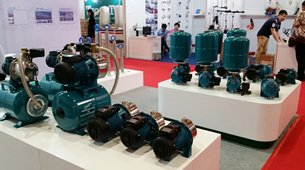
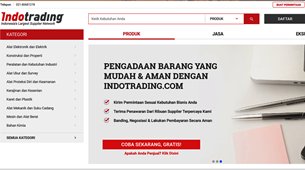
Another Shandong-based CNC machine manufacturer hoping to capitalise on the expanding Indonesian market was Sinmic Machinery. Maintaining her company had quite a different proposition to other CNC suppliers, Sales Manager Jessica Shu said: "We pride ourselves that we offer configurations suitable to every customers' needs, while also having a number of budgetary options on offer."
Currently on the look-out for Indonesian partners, the company specialises in the provision of woodworking and plastic CNC routers, woodworking machining centres, CNC engravers, sign-making CNC routers, 3D laser scanners, mould-making CNC machines, five-axis machining centres and high-power laser metal-cutting machines.
Concerns that the notoriously price-sensitive Indonesian market might not be willing to invest in higher-quality equipment were widespread at the event. Outlining his own company's solution to this particular problem, Dante Lin, Marketing Director of Superwatt Power Equipment, said: "We are planning to introduce different, more economical products to our standard range in order to meet the price requirements of Indonesian customers."
Shandong-based Superwatt manufactures diesel generator sets, mobile lighting towers, vehicle power stations, and gas generator sets.
Still finding its feet in the Indonesian market was Acepow, a Fujian-based generator manufacturer. Explaining the reasons behind its presence at the event, Sales Manager Clark Zheng said: "This is our way of taking a closer look at the opportunities the country offers. Hopefully, we can find a local partner that will help us grow here as we continue to expand into Southeast Asia.
"For our part, we believe that businesses need generators to ensure a continuous power supply. When you buy from us, what you're really signing up for is power reliability."
Another first-timer at the Jakarta show was the Shanghai Valve Factory. The publicly traded company manufactures valves for use in power plants, petrochemical plants, long-distance pipelines, ships, the metallurgy industry, paper production, the pharmaceutical industry, environmental protection and a number of defence-related sectors.
Seeing a clear synergy with the needs of the Indonesian industrial sector, Overseas Sales Manager Wang Jianwei said: "This could be a huge market for us as the majority of the country's manufacturers are already using similar valves to the ones we produce. Now it's just down to us to give them a good price."
With direct trade between China and Indonesia still something of a logistically and legally thorny issue, one business that was hoping to bridge the gap was Indotrading.com, a Jakarta-based e-commerce platform established to help SMEs promote their products and services online.
Explaining the problem, Rahman Anzi, one of the site's Business Consultants, said: "Indonesia is a huge market and, despite the large number of businesses and manufacturers already active here, there is room for expansion.
"Foreign companies, though, cannot sell directly to customers in Indonesia. In line with government regulations, foreign businesses need to have a local partner in order to trade here. As a result, Chinese companies are not allowed to list their products on our portal unless they have a link to a domestic business, meaning they are missing out on our 4.5 million monthly visitors."
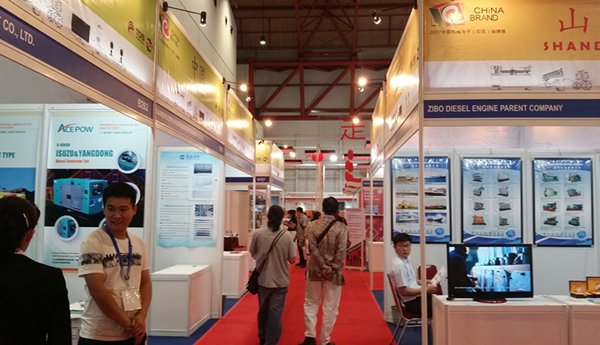
The 2017 China Machinery & Electronic Brand Show (Indonesia) took place at the Jakarta International Expo.
Marilyn Balcita, Special Correspondent, Jakarta
